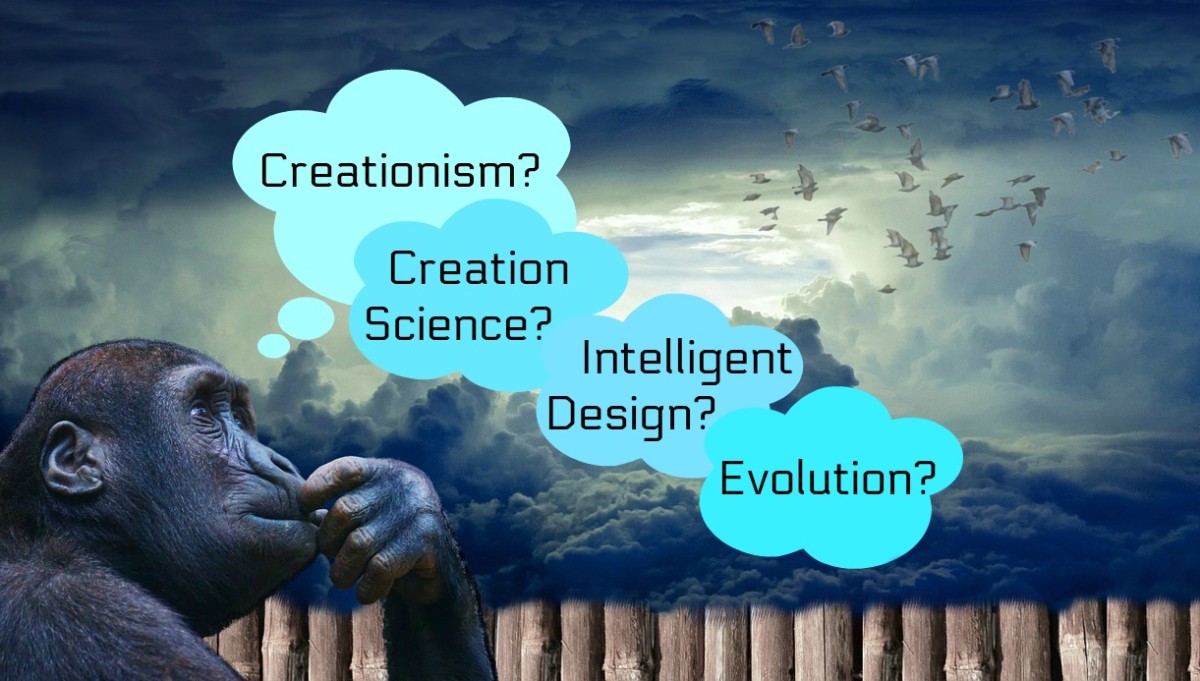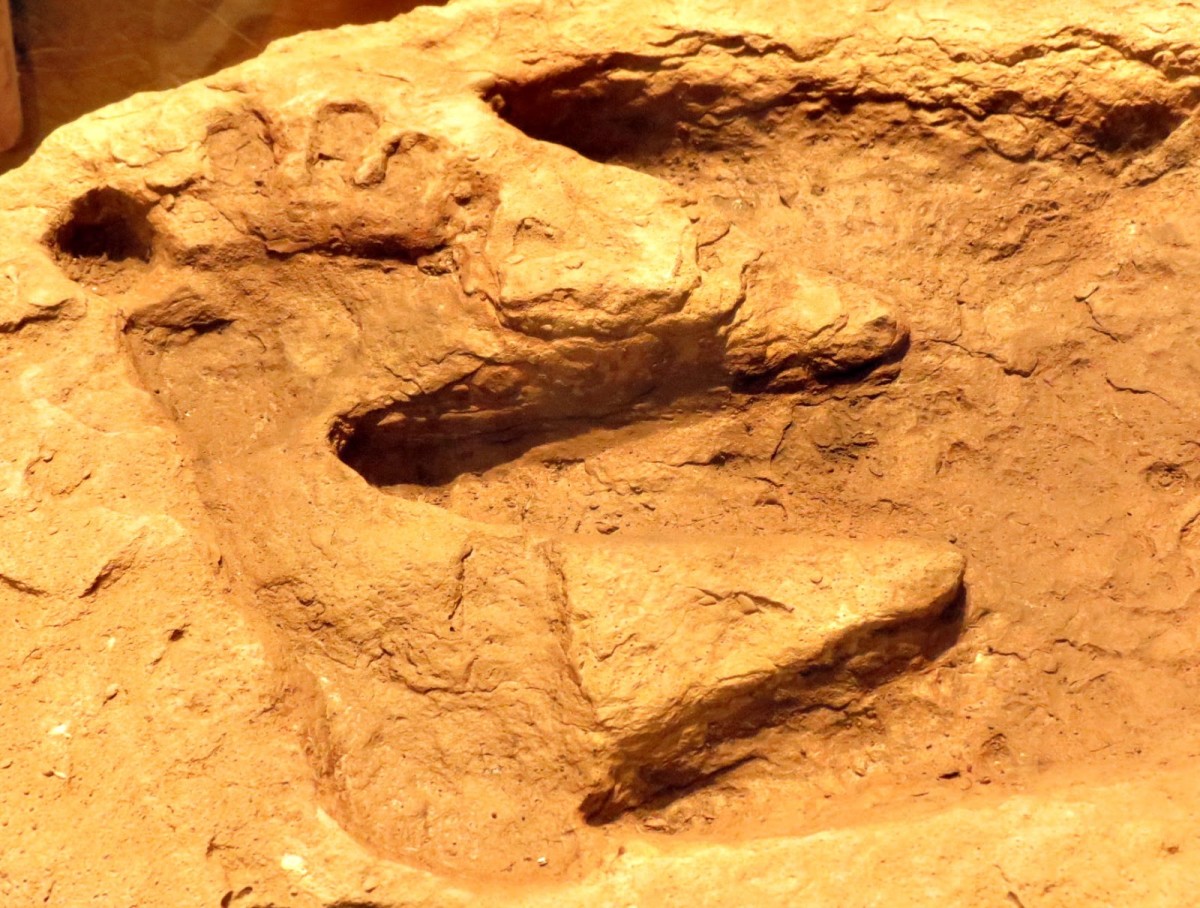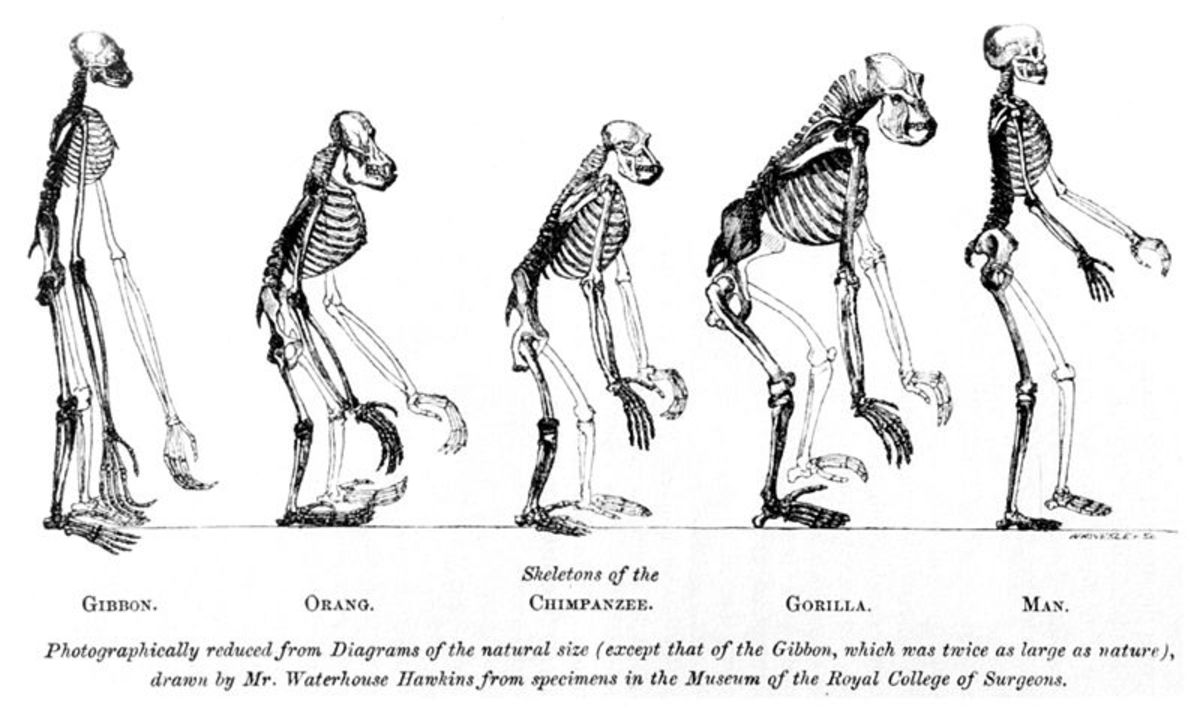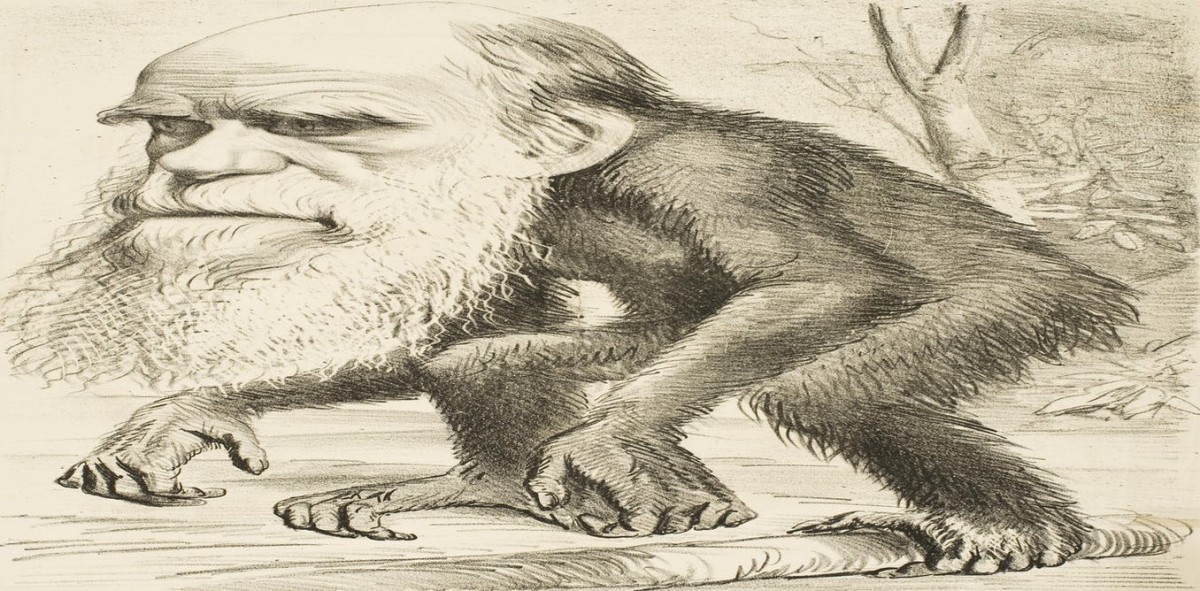Evolution in Focus
Introduction
The mainstream view of biologists approves evolution and the theory is becoming widely accepted and currently, evolution is studied in almost all major schools, colleges, and universities. The only colleges that may ban evolution are those which are located in religious communities or administrated by conservative believers. This gives it more credibility, and people who still believe in creationism are regarded as a bunch of old fashioned people who still cling to their outdated ideologies, or rather mythologies. But does the predominance of evolution make it true?
Let's see why they embrace the theory.

1. Scientific Evidence
For evolutionists, scientific evidence including fossil records, and the anatomical and genetic similarities between species support the theory. They also believe that more evidence will be revealed in the future, supporting the theory and making it even more widely accepted. Of course, I am not denying the evidence used as a pretext for the theory, but I am only questioning if they are enough to confirm it. For the anatomical and the genetic similarities between various species, maybe due to reasons other than sharing the same ancestries in the tree of life. Perhaps, they are due to sharing life. As for the genes, the proteins which are the building blocks of life, and the vital systems like respiratory, circulatory, digestive systems, and the whole anatomy, are necessary for life to exist and to continue. Moreover, nobody knows what is going to happen tomorrow, and yet evolutionists confirm that the future evidence will support the theory! Objectivity requires us to wait and see with anticipation future discoveries. History shows us that even very strong evidence can sometimes be misleading, and we have seen in the past how the scientific community used to believe something later considered to be radically false.
Another important issue is that evolutionists overlook and marginalize other evidence that is against the theory, like the Cambrian explosion, and the missing links.
2. The Spread of Atheism:
One of the fastest-growing doctrines in the world is atheism, and in my view, there are many reasons for that, including but not limited to the church abuse of power in the past which led people wrongfully to accuse religion rather than accusing the clerks and priests who were in power. Also, religions are bundled with teachings that contain a list of dos and don’ts, and this opposes the general desire of many who prefer to live without the restrictions or rules of the religious teachings. So the evolution theory freed them from any religious obligations or accountability. It provided them with a justification to believe that religions are a mere hoax and the world came to exist without the need for a Creator. Evolution, for them, replaces religions, despite the fact that while it provides an explanation for the diversity of species; it failed to explain the origin of life. They also overlook the fact that logically speaking, there is no development, evolution or progress without prior planning, work, and sustainability. So evolution, if true, cannot occur without a Creator, especially considering the complexity of life and nature which cannot be a product of blind forces. Even atheist scientists at some point find it hard to fully comprehend a blind evolution. For example, Professor doctor Hommer Smith, a pioneer in the field of nephrology, wrote in his book titled “From Fish to Philosopher”, in the opening of the chapter titled Man, “man was certainly not the goal of evolution, which evidently had no goal. He was not planned in an operation wholly planless,” However, when Smith discussed the evolution of fish in adapting to a new environment, through the development of their kidney function, when they migrated from fresh river water to salty seawater, he was surprised how kidney function changed to adapt to the new environment. “How the elasmobranches – which are the migrated fish – do this is also a mystery.” Indeed, it is a mystery, for if their kidney function was changed before their migration not after, this would be done through preplanning, and if it was changed after their migration, then how did they ever live in salty water with a kidney that functions in fresh water? This mystery cannot be solved without a Creator.
3. Creationism is Stumbling
The problem with Creationists is their assertion that Adam was created by God around 10,000 BC to 4000 BC, and this runs contrary to many current scientific findings. And I think that is why they are losing credibility. Unfortunately, the idea of direct creation has been bundled with the idea of a young age of the universe and man, and the latter has been disapproved. As a result, people refute the whole bundle, unaware of the fact that there are many believers of direct creation who are not necessarily bound to the belief of the young age of the universe. The Quran for instance, has never mentioned the age of the universe, or the age of human life on earth. So for me, a Creator who is the Wisest and the most Powerful is capable of creating us directly as well as creating us through evolution; both ways are valid. And there is no evidence that disproves the possibility of direct creation of man whether it took place 200,000 years ago or even millions of years ago.
Reasons for my Skepticism Regarding Evolution
Not only our common understanding and embracement of good values like altruism, courage and justice make me skeptic about the theory, but also our ability to choose between the good or bad is another factor that raises my skepticism.
1. Ethical Challenges
Although I see progress in technology that is reflected in all walks of life, I don’t see any progress at all concerning human manners or values. Sometimes, I even see the contrary to that. We are not any better. I always ask myself, are we morally evolving? If yes, in what way? What is the evidence? For a lie will always be seen as a lie even after millions of years. As a matter of fact, our view is the same, but the number of liars is increasing and takes increasingly different forms through the abuse of modern technology. Moreover, does evolution provide a stable foundation for morality? If yes, then how and it is changing? And if no, then can we trust our Moral belief, and the morals of today are not those of tomorrow? And if the rule of natural selection is providing a life for those who strive to get it, what makes altruism manifested in species that evolved in a way contrary to it?
Failing Attempts of Solving the Paradox
In his book ”The God Delusion”, the evolutionary biologist, Richard Dawkins mentioned that there are four good Darwinian reasons for individuals to be altruistic:
a) Genetic kinship: care for those who share similar genetic make-up.
b) Reciprocation: giving of favors in anticipation of a payback.
c) Acquiring a good reputation for generosity and kindness.
d) Conspicuous generosity demonstrates superiority.
As we see, Dawkins is exerting his best effort to fit Altruism into a blind mechanical evolutionary system. For the survival of the fittest, in the absence of a Merciful God, is a selfish form of nature that favors the strong over the weak. Consequently, evolutionists, up till now, have failed to provide us with an altruism explanation, justification or inducement.
In an attempt to solve the dilemma, Dawkins imagined that a lemon tree seed when harvested can bring a mango fruit, for the anticipation of payback, acquiring reputation and demonstrating superiority are attributes of those who are self-centered so how can it breed genuine altruism?!
In his new book, “Moral Origins”, Christopher Boehm, an evolutionary anthropologist speculates that human morality emerged when hunter-gatherers formed groups, and in order to survive, they had either to cooperate or die. Again, Boehm mixed two contrary things, for seeking interests is contrary to altruism and cannot explain it.
Some scholars believe that morals came about by chance through a long evolutionary process. Thus I am calling their belief " coincidence of the gaps"; as whenever they fail to have an answer to a question, they just say it came up by chance; as they did when they could not answer how life came about!
Another question shakes my head which is if altruism is an evolved trait, why is it not inherited by all human beings? And the answer lies in our ability to choose, but again the ability of choice runs contrary to a blind mechanical system of natural selection, while it is perfectly coherent with the teachings of religions that make us held accountable before God.

2. Freewill
Do we have free will? This question surprises me, as it sounds like someone asking about the existence of the sun in an open area on a sunny day. For our free will is manifested once we open our eyes in the early morning and decide whether to take our cup of coffee or tea; it is shown when we put on our clothes that we choose and depicted in our hair cut and the sunglasses that we wore. Despite that, we find people question if we are totally predestined, and they seek the answer in biology, psychology or philosophy, although the question has already been answered through their own experiences. Indeed, we are partially predestined, like I did not choose my name, my country, my talents, my IQ, my looks or my family, but I have a choice to spend every moment in my life, am I going to hurt or am I going to help? I have to choose what action I should take with the tools and talents I have gifted with, and for that, I am held accountable.
I find it hard to believe that the concept of freewill fits in a mechanical blind evolutionary system. And that is why evolutionists try hard to deny it. They argue that we are predestined on the pretext of psychology and neurology and they assert their claim by bringing up the nature-nurture debate to the surface. Richard Dawkins’ foundation site, for example, published an article titled There’s No Such Thing As Free Will However, in my view, biology and environment may determine our abilities, but free will determines what we do with those abilities. To simplify my view, imagine that our bodies are like cars manufactured with certain shapes, colors, motor abilities that affect speed and stability (nature). Meanwhile, the type of gasoline and maintenance provided alter their performance throughout the years (nurture). But it’s the driver who chooses to go in this direction or that, with which speed, and whether or not to follow the traffic laws.
I have a couple of questions for those who are denying freewill. First, from where do we get the idea or the concept of free will if we are only pre-programmed to do what we have to?
And why don’t we close all courts and cancel all cases? According to your view, everybody is innocent, for criminals are forced or predestined to commit their crimes.
Final Words
All evolution skeptics are believers in God; however, evolutionists are atheists, agnostics, and believers. Accordingly, you may adopt one of the following convictions:
1. The evolution theory is a well-established theory, but some believers do not embrace it as it contradicts their religious text, for they take their religious text ‘literally’.
2. There is no consensus on evolution. This is enough evidence to prove that it has not been established yet. And because evolution doesn’t prove or refute the existence of God, we find people with different convictions embrace the theory; on the other hand, creationism and intelligent design disprove atheism; that is why no atheist would dare to embrace it. In the era of secularism, it is natural to find that the evolution theory is very well supported.








